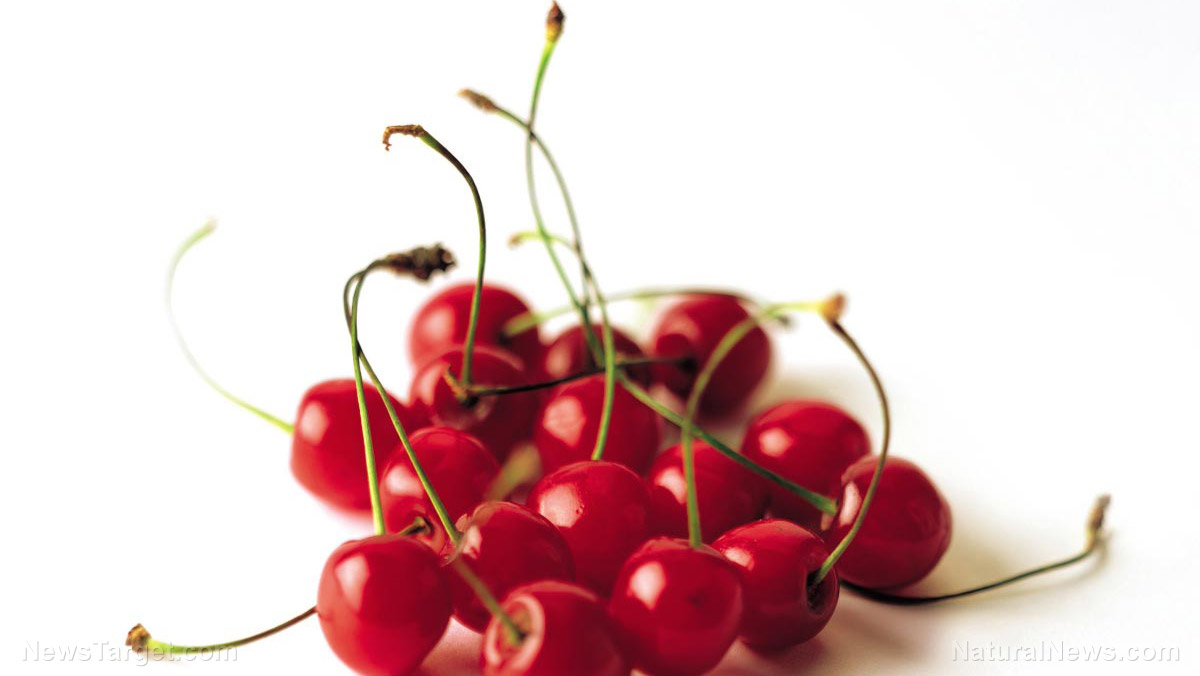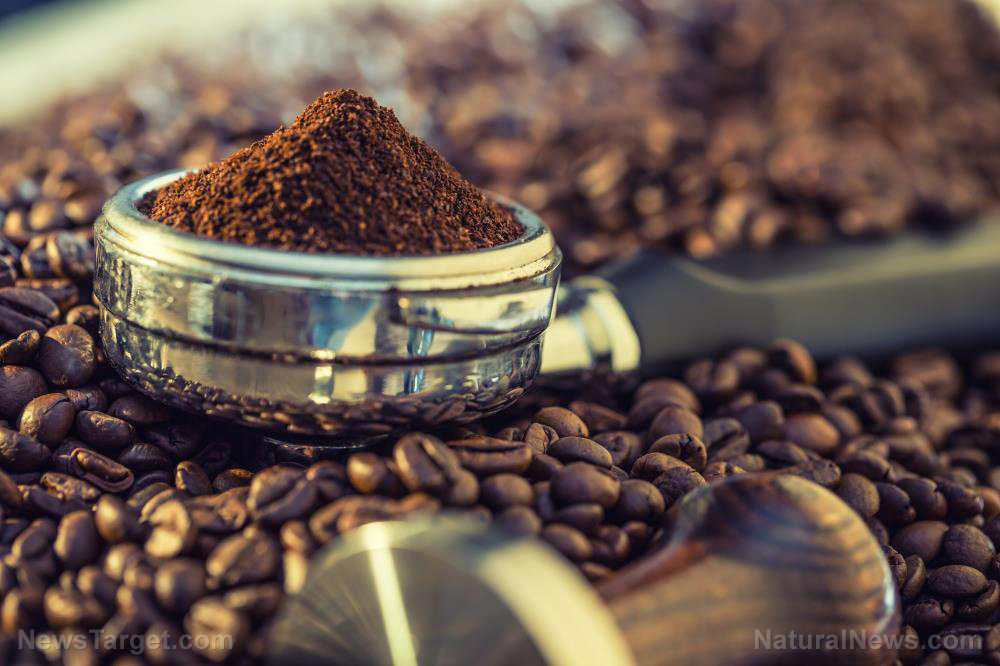4 Health benefits of cinnamon, a powerful spice that can help reduce blood sugar levels
07/06/2022 / By Zoey Sky

As a flavorful spice, cinnamon should be used on more than just hot chocolate or desserts. In fact, a balanced diet that incorporates cinnamon into healthy dishes may help reduce your blood sugar levels and lower cholesterol.
According to research, cinnamon has been used as early as 2800 B.C. for anointing, embalming and treating digestive and respiratory ailments. Cinnamon is also used in traditional medicine in countries like China, India and Iran.
In modern medicine, cinnamon is used as an antioxidant, anti-inflammatory, antilipemic, antidiabetic, antimicrobial and anticancer agent.
According to the National Institutes of Health, cinnamon can be used as a dietary supplement for diabetes, gastrointestinal issues, irritable bowel syndrome (IBS) and other conditions.
Detailed below are the four major health benefits of cinnamon.
Cinnamon contains beneficial antioxidants
Fatty fish and olive oil are often associated with the Mediterranean diet, but did you know that cinnamon is also a staple of this heart-healthy diet?
Cinnamon has amazing antioxidant properties. The spice can be beneficial especially if you follow a typical Western diet, which includes many processed foods and lacks antioxidants, leading to a rise in inflammation.
Eventually, chronic inflammation can increase your risk of developing chronic health conditions.
Cinnamon is full of antioxidant polyphenols, which protect your tissues from oxidative stress and free radical damage. These antioxidants can help prevent chronic inflammation.
Cinnamon is a natural anti-inflammatory
Cinnamon can also act as an anti-inflammatory agent.
A comparative study published in the journal Food and Function examined both Cinnamomum zeylanicum (Mexican cinnamon) and C. cassia (Chinese cinnamon) to identify the anti-inflammatory phytochemicals they contain.
The researchers reported that e-cinnamaldehyde and o-methoxy cinnamaldehyde are some of the most potent bioactive compounds in cinnamon species. Thanks to these compounds, cinnamon is a promising treatment for age-related inflammatory conditions.
Cinnamon helps reduce blood sugar levels
After eating a meal, your blood sugar levels can rise quickly if you eat foods that contain many carbohydrates. These carbs are then turned into blood sugar.
Sudden fluctuations in blood sugar are linked to oxidative stress and cause inflammation, which can damage your cells. Fluctuations also increase your risk of chronic disease.
In a study published in the journal Diabetes Care, researchers worked with 60 men and women with Type 2 diabetes to find out if taking cinnamon daily would improve their triglyceride, blood glucose, total cholesterol, high-density lipoprotein (HDL) cholesterol and low-density lipoprotein (LDL) cholesterol levels.
Results revealed that enduring effects were observed after 40 days in reducing the mean levels of:
- Fasting serum glucose (18 to 29 percent)
- Triglyceride (23 to 30 percent)
- LDL cholesterol (Seven to 27 percent)
- Total cholesterol (12 to 26 percent)
Participants in three groups took one, three or six grams of cinnamon while on insulin therapy. Data showed that all levels experienced reductions, which continued beyond the 40 days of the study.
The researchers observed no changes in their HDL cholesterol levels. The results show that taking cinnamon daily can help reduce risk factors associated with diabetes and cardiovascular disease. (Related: Study: Cinnamon compound boosts metabolic health and helps fight obesity.)
Cinnamon helps lower cholesterol
Volunteers involved in a Diabetes Care study experienced improved triglyceride and cholesterol levels after taking cinnamon.
A 2017 meta-analysis of 13 controlled trials also associated daily cinnamon intake with a significant statistical reduction in triglyceride and total cholesterol levels.
Both studies suggest that taking at least one gram (half a teaspoon) of cinnamon can be effective in lowering cholesterol within a few weeks.
Different kinds of cinnamon and how to tell if cinnamon is “real”
For centuries, the roots, fruits, flowers and leaves of cinnamon trees have been used in traditional medicine and for cooking. However, cinnamon used as a spice now comes from the bark of various cinnamon tree species.
These are the four common types of cinnamon that you can get in grocery stores and herbal shops:
- Cassia cinnamon or Chinese cinnamon (C. aromaticum)
- Ceylon cinnamon or Mexican cinnamon (C. zeylanicum)
- Indonesian cinnamon (C. burmannii)
- Vietnamese cinnamon (C. loureiroi)
The most common type of cinnamon sold in North America varies depending on the source and it can also change in availability based on location and price.
To confirm if the product is “real” cinnamon, check the scientific name of the specific cinnamon variety you’re searching for on the ingredients list of the nutrition label. Its common name may also be listed.
Ceylon cinnamon is more expensive than other cinnamon varieties so it is harder to find. If you want to get Ceylon cinnamon, check at specialty spice shops. More affordable varieties, like the Indonesian variety, are usually available in most supermarkets.
Considerations before using cinnamon
Cinnamon alone is considered safe to use, but Cassia cinnamon contains coumarin, which can be toxic to the liver if taken in large amounts.
Coumarin is a natural flavoring substance found in many plants, such as green tea. Ground cassia contains at least seven to 18 milligrams of coumarin for every teaspoon (2.6 grams).
If you are considering concentrated cinnamon supplements, have yourself checked to make sure you don’t have a sensitivity to coumarin.
Incorporate cinnamon into a balanced diet to reduce your blood sugar and cholesterol levels.
Watch the video below to learn how to make apple cinnamon protein muffins.
This video is from the Health Ranger Store channel on Brighteon.com.
More related stories:
Health benefits of cinnamon: What’s the difference between Ceylon and cassia cinnamon?
Medicinal benefits of cinnamon.
Can cinnamon benefit patients with PCOS?
Sources include:
Submit a correction >>
Tagged Under:
alternative medicine, anti-inflammatory, antioxidants, blood sugar, cholesterol, cinnamaldehyde, cinnamon, food cures, food is medicine, food science, functional food, herbal medicine, Herbs, natural cures, natural health, natural medicine, remedies
This article may contain statements that reflect the opinion of the author
RECENT NEWS & ARTICLES
COPYRIGHT © 2017 PREVENTDIABETES.NEWS
All content posted on this site is protected under Free Speech. PreventDiabetes.news is not responsible for content written by contributing authors. The information on this site is provided for educational and entertainment purposes only. It is not intended as a substitute for professional advice of any kind. PreventDiabetes.news assumes no responsibility for the use or misuse of this material. All trademarks, registered trademarks and service marks mentioned on this site are the property of their respective owners.




















